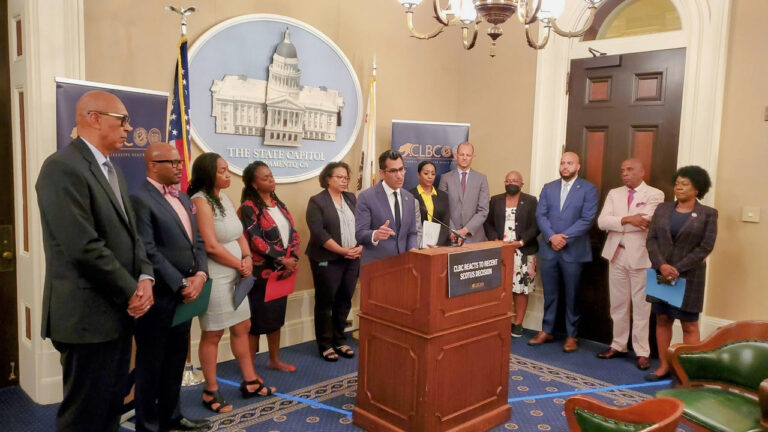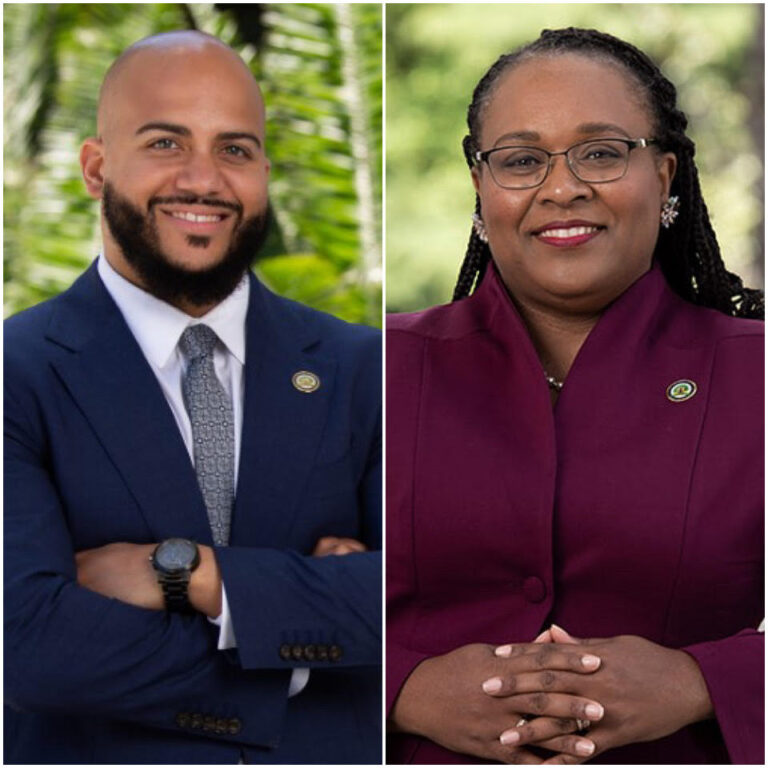WASHINGTON (AP) — President Joe Biden’s pick to serve as America’s top military officer warned senators Tuesday of the difficulties posed by any potential conflict in Asia and described how he would use lessons learned from the Ukraine war to help the U.S. military prepare.
But Air Force Gen. CQ Brown Jr. may not be able to apply those lessons anytime soon, even after being well-received in a confirmation hearing to serve as the next chairman of the Joint Chiefs of Staff.
Brown’s nomination is among more than 260 being stalled by Republican Sen. Tommy Tuberville of Alabama. He is blocking the confirmation of all senior military officers in protest over Defense Department policy that pays for travel when a service member has to go out of state to get an abortion or other reproductive care.
A history-making fighter pilot, Brown has a deep knowledge of China and a broad understanding of space, cyber and other technologies. His confirmation would mean that, for the first time, both the Pentagon’s top military and civilian positions would be held by African Americans.
Brown told the Senate Armed Services Committee that a potential conflict in Asia would be challenging, because of its large size. He said the military has been doing exercises and tabletop drills to practice getting needed equipment into the region quickly. “You cannot wait until the crisis occurs,” he said. “You have to pre-position capability and have that in place. You have to work with allies and partners to have access to locations.”
But discussions about national security were overshadowed by the tensions over Tuberville’s campaign.
Democrats blasted him and Republicans said they are hoping to persuade him to lift the holds — which could affect 650 service members by year’s end.
Tuberville never mentioned the topic when he questioned Brown during the hearing. Instead, he asked about cutting costs in the Joint Chiefs office, and told Brown he’d like an update, “because you’re gonna be the new leader.” He added: “Thank you for taking this on. It’s gonna be a hard job and any way we can help you, we’re here to help.”
Sen. Elizabeth Warren, D-Mass., offered up a quick retort: “What he could do to help is lift this stay.”
Asked later if he will lift his hold for a vote on Brown, Tuberville didn’t answer directly, but said, “I would imagine the Joint Chiefs of Staff chairman will go on the floor and be voted on.” Tuberville, who blocked a vote Monday on the next Marine commandant, said he would vote in favor of Brown.
Members of the Biden administration and lawmakers have struggled to find a resolution, with little optimism.
“It’s likely that he won’t be able to get confirmed,” said John Kirby, National Security Council spokesperson, referring to Brown on MSNBC’s “Morning Joe” on Tuesday. “You’re talking about several hundred officers now that can’t move on to the next job.”
The Marine Corps is already dealing with the issue. Gen. David Berger stepped down Monday as commandant after a four-year term, and Gen. Eric Smith — the current No. 2 in the Corps — is serving as acting commandant because his nomination for the top post is stalled.
Kirby said acting officials can do many of the things a confirmed leader can do, but some authorities are limited, including their ability to move money around. “The ironic thing for me is, he claims that he’s trying to keep the politics out of the military,” said Kirby. “His very action is politicizing the military because he’s making it about the Pentagon’s policy rules for reproductive care.”
Asked about the issue, Brown told senators he worried that some officers forced to fill acting roles may not have the needed experience. And he said the delays are hurting families trying to sell their homes or get their kids in new schools but are now in limbo. Some of those, he said, may choose to just retire or leave.
Democrats aired their frustrations in the hearing.
“Enough is enough,” snapped Sen. Jacky Rosen, D-Nev. And Sen. Tim Kaine, D-Va., warned that service members may choose to leave the military if they see their careers blocked.
“I would urge all of my colleagues to turn away from the path that we’re on where we are disrespecting and punishing people because we’re unhappy with policies in the military that these individuals had nothing to do with,” Kaine said.
Tuberville’s fellow Republicans said little on the matter during the session. But in the halls of the Capitol Tuesday the issue was a prime topic.
“I think that the longer this drags on, the more problematic it becomes for the military to function and operate in the way that I think the American people expect them to operate. So I’m hoping something can be worked out here,” said Sen. John Thune, R-S.D.
Thune, the No. 2 Senate Republican, said he believes Tuberville is talking with Rhode Island Democratic Sen. Jack Reed, chairman of the armed services panel, about a path forward. And Mississippi Sen. Roger Wicker, the top Republican on the committee, said he would talk to Tuberville and Senate leaders to seek a resolution, adding, “I think the general officers should be confirmed.”
Wicker and Sen. John Cornyn, R-Texas, said they agree with the point Tuberville is trying to make. But Cornyn said he wants to try to find a way “that would help him make his point without blocking a lot of these nominations, which has nothing to do with the controversy.” He also warned that Tuberville may be setting a precedent “that we’re not going to like in the future.”
Republican Sen. Marco Rubio of Florida offered support for Tuberville, saying he isn’t worried about the holds.
“The most important ones, the ones that they say is so critical or the world will fall apart, they can just put it up for a vote on that floor right there,” Rubio told reporters.
Tuberville met with Brown Monday and said in a statement that they discussed “their shared desire to keep politics out of the military, their effort to improve housing for sailors and airmen, and the need to improve military recruitment.”
If confirmed, Brown would replace Army Gen. Mark Milley, whose term as chairman ends Sept. 30. The only other Black person to serve as Joint Chiefs chairman was Army Gen. Colin Powell. Defense Secretary Lloyd Austin, the first Black Pentagon chief, has been in the job since the beginning of the administration.
















